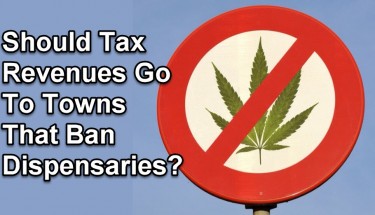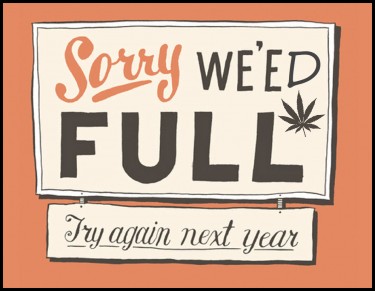Why Are So Many Municipalities Opting out of Their State's Cannabis Marketplace?

It is pretty disturbing that several municipalities, cities, and towns are refusing to participate in their state's adult-use legal cannabis marketplace or programs. Cannabis experts and enthusiasts are asking why and this article provides some perspective on the issue.
In the United States of America, 16 states, including Washington D.C, have legalized cannabis for adult use. Although this is good news for those at the forefront advocating for legalization, it is shocking to discover that some municipalities refuse to participate in such programs.
Opt-outs are not a new concept but have a negative impact on the cannabis market in significant states. For example, in a state like California with a thriving marijuana market, 161 of its 482 municipalities have declined to join the adult-use program, which started in 2019.
The state of Michigan is another example of the impact of opting out. Michigan has 500 towns prohibiting cannabis operations since the state legalized it in 2018. Additionally, the city of Detroit is currently embroiled in a lawsuit over a 15-year residency rule for social equity applicants, which may make the town reject cannabis sales.
So if cannabis offers the promise of increasing revenue for the state, why are municipalities sabotaging the legalization process?
Why are they opting out?
The reasons for opting out vary for the different municipalities. Generally, cities have the right to declare their cannabis status within 180 days after the state's legalization legislation is passed into law. But according to experts, some of the municipalities worry about lawsuits against local police as they believe that such cannabis bills pose an increased risk for police liability to cannabis arrests.
Some towns in New Jersey seem ready to accept the idea of manufacturing but with some restrictions. They do not want to open up to pot shops and dispensaries. Experts assert these towns erroneously believe that banning dispensaries will decrease police involvement in pot-possession issues.
The cannabis industry is currently undergoing an evolutionary phase. Cannabis is finally getting the recognition it deserves, but these new laws and bills make the municipalities uncertain about the future. Some towns and cities hold back because they are trying to protect themselves from lawsuits and police challenges.
The situation gets interesting with data showing that while the municipalities are declining from cannabis programs, some people in those towns and cities support marijuana legalization. Contrarily the same people who support legalization do not want to see the cannabis business thrive in their neighborhood.
They don't want to have cannabis shops side-by-side with their favorite coffee shop or in the same area as where their kids go to school. They also do not want cannabis businesses or farms close to their grandchildren's playgrounds.
So with such people, it is a case of NIMBY that categorizes them as individuals who object to something because they perceive that it is unpleasant or hazardous to their area. The thing with the idea of NIMBYness is that the same people do not object to these developments elsewhere.
Hence the reason they may object to cannabis acceptance in their municipality but don't question it when it is accepted in other states or cities.
The hope of cannabis enthusiasts
The reality of municipalities opting out of cannabis programs affects the entire cannabis industry nationwide. One city pulling back when others are forging ahead affects the progress the cannabis industry should make in recent times.
However, cannabis experts remain hopeful that these municipalities will reconsider their position when they see the financial contributions and impact cannabis sales will have on their state revenue.
There is also the desire for increased educational investments in such communities. The SVP of government and regulatory affairs for Green Thumb Industries Inc., Dina Rollman, maintains that educating the communities will help shift their mindset about cannabis.
Some of the people in the affected municipalities still associate cannabis with something negative. Until there is a change in thinking, they will continue to opt-out of cannabis programs. The individuals in the cities and towns can only embrace cannabis based on their understanding of what it does and its value in their community.
The financial implications of opting-out
Some municipalities will have to go back to the drawing board and take a closer look at their decision to opt out because it has dire financial consequences. A city that isn't doing so well in job creation and internally generated revenue will need a cannabis market.
The municipalities will lose lots of money yearly, which could have come from planting, processing, and selling cannabis. For example, California generates over $1 billion in revenue from legal adult-use marijuana. Alaska could also generate over $23 million in revenue.
The cannabis businesses in those municipalities will bear the brunt of the opt-out. Such companies will miss out on the global opportunities cannabis offers, with local entrepreneurs losing their marijuana licenses.
Is the opt-out sustainable?
The cannabis community still thinks it is too early to ascertain if the municipalities opting out will influence the undecided cities and how this will play out in the future. Cannabis enthusiasts also agree that such opt-outs will remain common as they are a part of a professional cannabis industry.
However, some cities and towns can become holdouts, so long opting out is an option. More so, some municipalities want to wait until their neighboring communities work out the legal and police modalities before opting in.
Bottom Line
According to Leafly Jobs Report, cannabis currently supports 321,000 full-time jobs across various towns, cities, and municipalities. The impact of these jobs affects both residents of the city and the state's budget, which is mainly funded by taxes.
With such impressive potential derived from cannabis, one would think that all municipalities will take marijuana programs seriously and create an enabling environment for businesses. Sadly, many cities miss out on this opportunity, and it paints a bleak future for cannabis in those areas.
As the experts say, there is still hope for the municipalities opting out. If only they will get educated on the potentials of cannabis and the enormous financial possibilities it holds for their economy.
MARIJUANA TOWNS AND CITIES, IT'S COMPLICATED, READ THESE...
SHOULD MARIJUANA TAX REVENUE GO TO TOWNS THAT OPT OUT OF LICENSING?
OR..
SHOULD TOWNS AND CITIES CAP MARIJUANA LICENESES?








